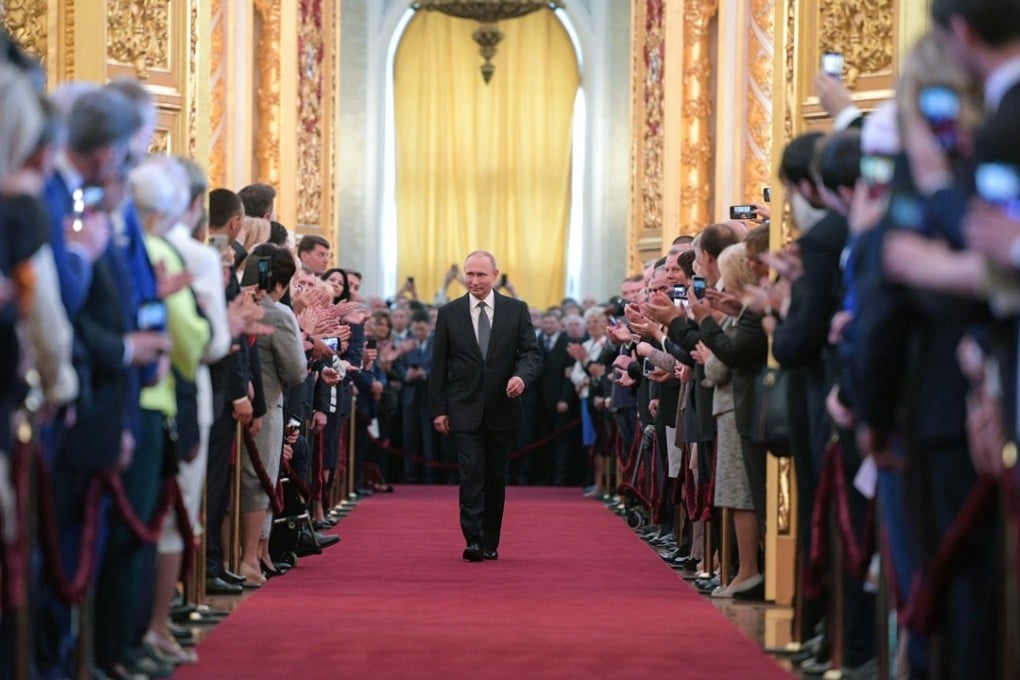Vladimir Putin launches fourth term as Russia’s president with ironclad rule and promises to improve livelihoods
He took the oath of office on Monday in the resplendent pink marble Andreyevsky Hall of the Grand Kremlin Palace, the throne room of Russia’s tsars

President Vladimir Putin, already Russia’s longest serving leader since Stalin, launched a fourth presidential term on Monday in which he promised to improve citizens’ lives at home while showing no sign of backing down in his confrontation with the West.
Russian state television showed the 65-year-old leader arise from his office, don a suit jacket and walk down the long redlined Kremlin halls to a waiting car. In a lavish ceremony of pomp and splendour, Putin then took the oath of office in the resplendent pink marble Andreyevsky Hall of the Grand Kremlin Palace, the throne room of Russia’s tsars.
In an apparent bid to show the breadth of Putin’s popularity, activists and volunteers from Putin’s re-election campaign joined official dignitaries among about 6,000 guests. So did action star Steven Seagal, whom Putin presented with a Russian passport in 2016, and the leather-clad leader of a pro-Kremlin motorcycle club who is known as “The Surgeon”.

The six-year term is supposed to be Putin’s last under the constitution. But speculation has mounted in Moscow that Putin will seek to hold on to power in some way after 2024, perhaps by taking on a new, leader-of-the-nation role.
For now, Putin’s dominance of the nation’s political system seems ironclad. His popularity surged after he annexed the territory of Crimea from Ukraine in 2014, and many Russians have accepted his call to unite around the Kremlin amid the confrontation with the West. To his supporters, Western sanctions and accusations of Putin’s complicity in US election interference or Olympic doping are simply means of keeping their country down.
But while Putin’s foreign-policy legacy after nearly two decades in power reflects a rise in Russia’s geopolitical ambitions that many Russians support, his accomplishments at home are less clear cut. Putin benefited from rising oil prices early in his tenure, but since 2008, Russia’s stagnant economy has grown at an average of just over 1 per cent a year.
